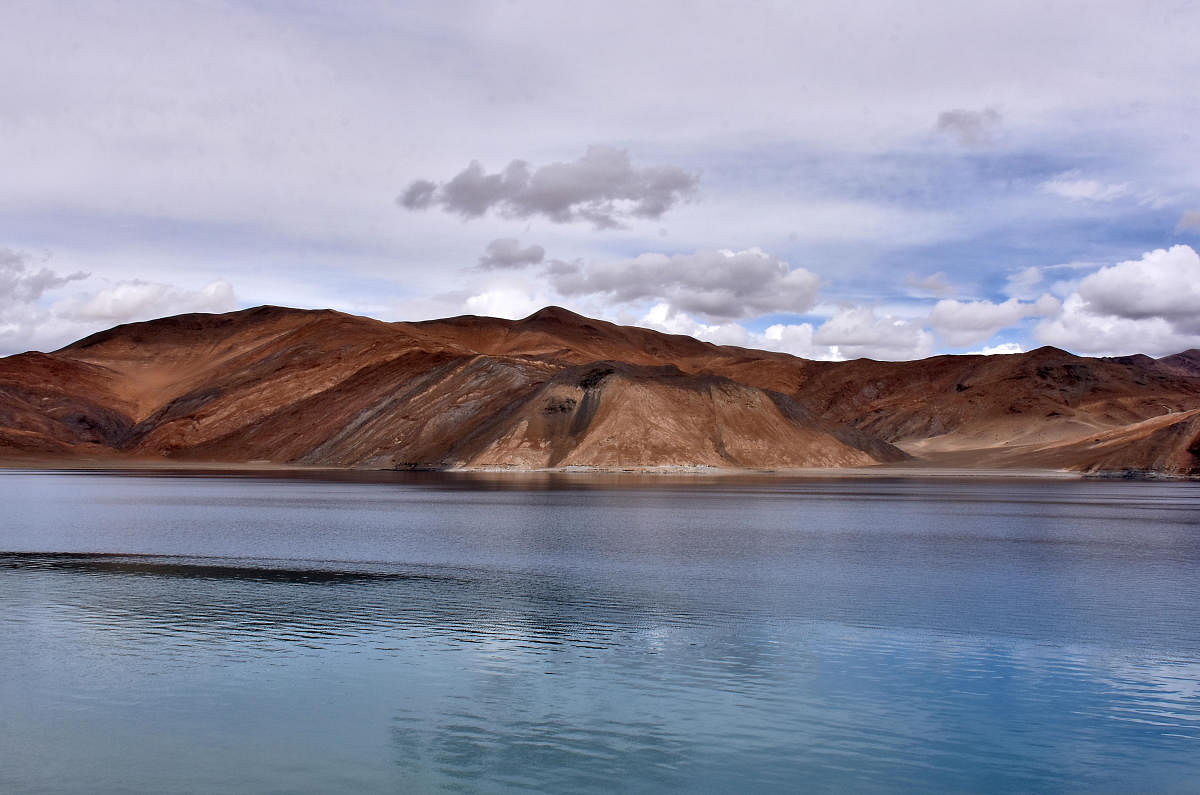
Even as all eyes are on Galwan Valley after the June 15 violent clash, the six-week-long stand-off between Indian and Chinese soldiers on the northern bank of the Pangong Tso continues unresolved.
The talks between diplomats and officials of the Indian Army and the Chinese People’s Liberation Army (PLA) so far did not result in any headway towards resolving the stand-off on the bank of the Pangong Tso. The Chinese PLA rather built more defence structures in the ‘Finger 4’ area in addition to the bunker they constructed soon after a scuffle with the soldiers of the two nations early last month.
The senior diplomats of the two sides are likely to hold a video-conference within the next few days under the Working Mechanism for Consultation and Coordination (WMCC) on India-China Border Affairs.
Sources told DH in New Delhi that the diplomats would discuss de-escalation and disengagement both in Galwan Valley and Pangong Tso.
The senior officials of the Indian Army and the Chinese PLA are also expected to hold a series of meetings, including one at the level of the Corps Commanders.
China has been steadfastly refusing to yield to India’s demand for withdrawal of the PLA troops from “Finger 4” on the bank of the Pangong Tso and for demolition of the bunker and the moat-like structure they built to deny Indian Army soldiers access to an area they regularly patrolled before the stand-off started. They rather built more defence structures in and around the area.
The spurs of the mountain range on the northern bank of the Pangong Tso jut towards the lake like a palm with the protrusions looking like fingers. They are in fact demarcated on the maps as ‘Fingers’, with the “Finger 1” at western end and the “Finger 8”. China claims that the LAC, after cutting through the Pangong Tso, goes through the “Finger 4”. India, on the other hand, claims that the line goes through the “Finger 8”.
The soldiers of the Indian Army and the Chinese PLA had a scuffle on Finger 4 on May 5. The PLA later built the bunker and deployed additional troops in the area. The Indian Army also responded with deployment in adequate numbers, resulting in a stand-off.
